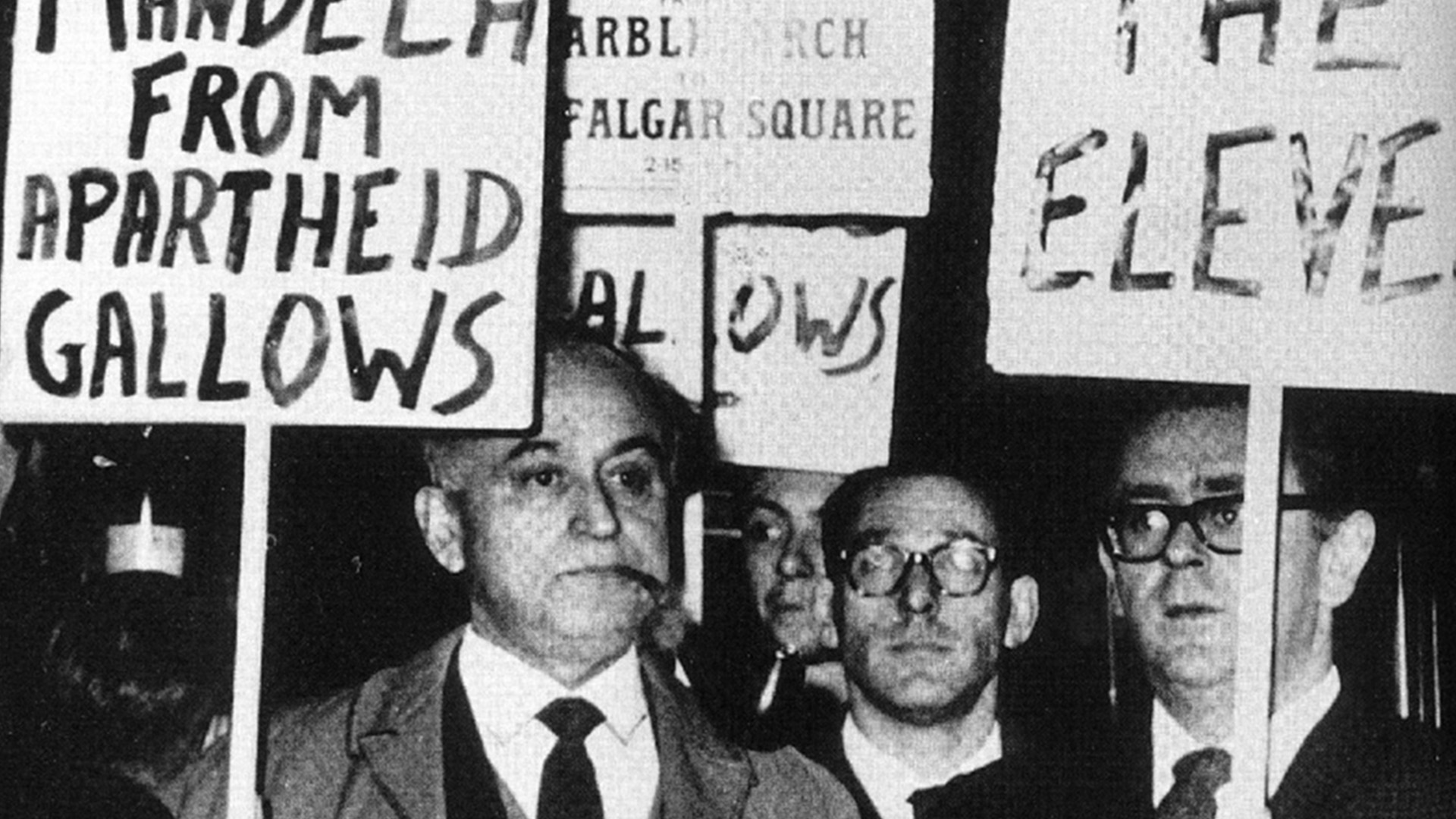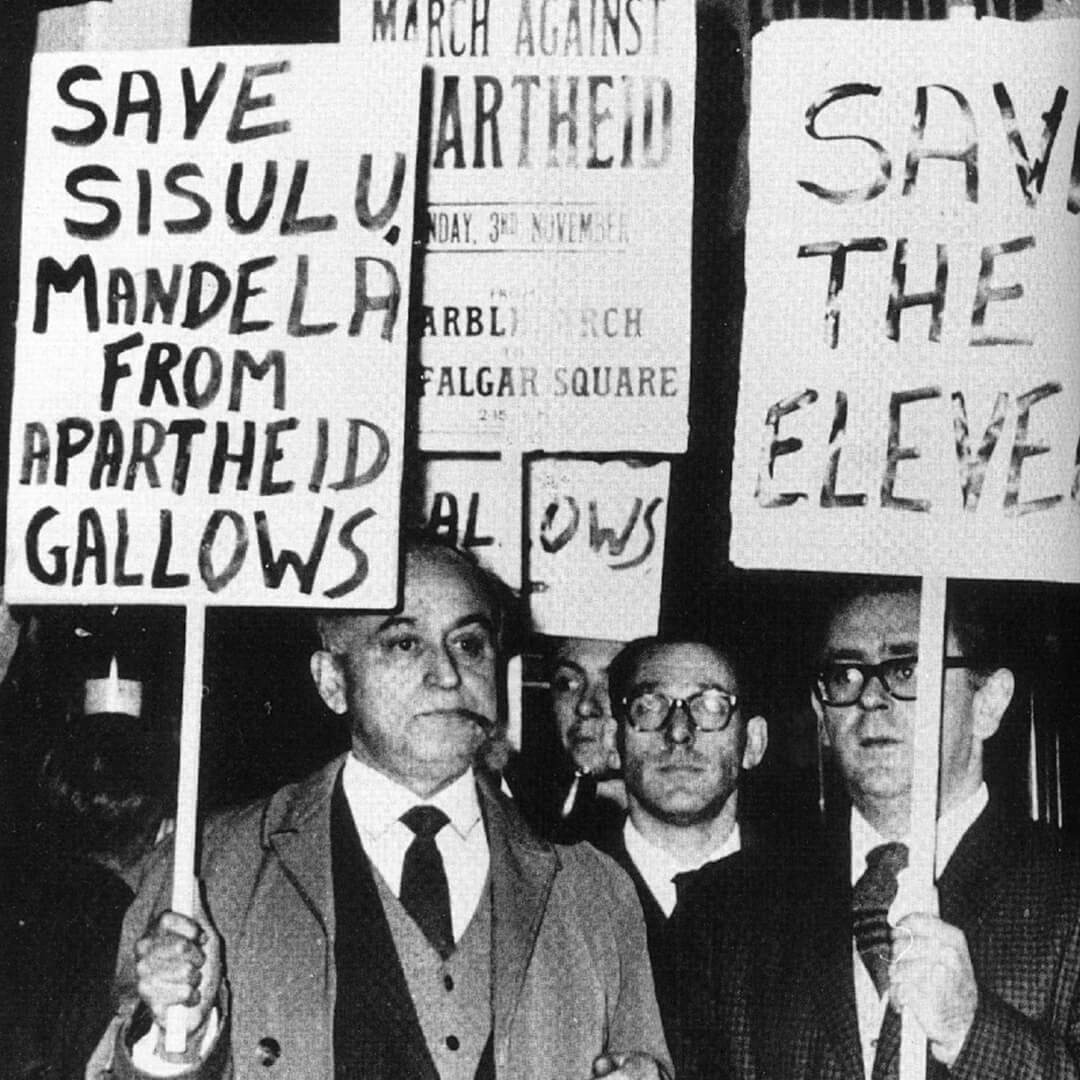About the episode
In this podcast Ciara McCombe speaks to Professor Thula Simpson about apartheid and the anti-apartheid movement in its global context. Together they discuss how the seeds of apartheid’s failure were sown in 1960s despite the internal challenges faced by the ANC, and how the the anti-apartheid movement worldwide placed increasing external pressure on the National Party.
Podcast length: 57 min 00 sec
Use the Drop-down menu below to view the Questions posed by Ciara McCombe to Professor Thula Simpson in this episode.
Questions and Podcast Timings
00:00 Introduction
02:34 How do the 1960’s reshape South Africa?
7:24 What were the key moral questions being asked by apartheid in the 1960’s and why were they more pressing than in the 50’s?
9:21 What do you think Verwoerd was prioritising, capitalism or separate development?
13:53 What was the context for the ‘Wind of Change’ speech by Harold Macmillan and what was the reception to it from Verwoerd?
17:02 What was the impact of South Africa leaving the Commonwealth and becoming a Republic?
18:45 Why didn’t the boycott movement against South Africa have more impact?
20:02 Would Communism be a main factor in Britain and the US standing aside?
21:26 How could they justify their position?
24:10 What was the global anti-apartheid movement and what were their main objectives and tactics?
28:40 Do you think the Labour Party had any success in making an impact on the British government regarding apartheid?
30:42 Why were the sporting boycotts a route they went down and was it affective?
32:30 Do you know what reaction white South Africans had to this?
36:27 What was African resistance like in the 1960’s?
40:09 Were the ANC struggling to create an impact within South Africa in the 1960’s?
43:46 What was the Hani Memorandum and what was its impact on the ANC?
48:14 Why did the ANC decide to have a separate military wing?
51:18 Would the criticisms of the ANC by Anton Lembede and Chris Hani be unfair?
54:03 What is the most important thing holding up the structure of apartheid?
”“And what we've got during the 1960s is a decade of vigorous growth within South Africa. We've also got the impact of decolonization on South Africa being limited and softened by the fact that there still exists a buffer of White ruled states in the form of the Portuguese colonies and White Rhodesia as well. These are the elements that will make it seem as though the 1960s is the golden age of apartheid, and that the Pretoria government is able basically to stick a middle finger up to the international community and go it alone. But there are accumulated liabilities which will grow and develop into a crisis quite rapidly as the 1970s advances.”
Thula Simpson
Yusuf Dadoo and Joe Slovo on the march that launched the Anti-Apartheid Movement’s ‘Anti-Apartheid Month’ on 3 November 1963 in response to increasing repression in South Africa and the arrest of Nelson Mandela and his comrades in July.
Courtesy Anti-Apartheid Movement Archives
Biography of Historians
Thula Simpson is Associate Professor of History at the University of Pretoria. He is the author of the acclaimed Umkhonto we Sizwe: The ANC’s Armed Struggle (Penguin Random House: 2016).
Further reading
- Anti-Apartheid Movement Archives, Forward to Freedom (website & digital archive)
- Jacob Dlamini, Native Nostalgia (Jacana Media: 2009)
- Adrian Guelke, Rethinking the Rise and Fall of Apartheid, South Africa and World Politics (Palgrave: 2004)
- Peter Hain and Andre Odendaal, Pitch Battles: Sport, Racism and Resistance (Rowman & Littlefield, 2020)
- Philip Levy: Sanctions on South Africa: What did they do? (Yale – Economic Growth Center, Papers. 89. 10.1257/aer.89.2.415, 1999)
- Hilary Sapire and Chris Saunders (eds), Southern African Liberation Struggles: New Local, Regional and Global Perspectives (UCT Press: 2022)
- Jeremy Seekings, The UDF – History of the United Democratic Front in South Africa (Ohio University Press: 2000)
- Thula Simpson, Umkhonto we Sizwe: the ANC’s Armed Struggle (Penguin Random House: 2016)
General further reading
- William Beinart, Twentieth-Century South Africa (Oxford University Press: 2001)
- William Beinart and Edward Teversham, ‘South Africa, 1948-1994: From Apartheid State to Rainbow Nation’ in Edexcel AS/A-Level History Textbook, Searching for Rights and Freedoms in the Twentieth-Century (Pearson Education: 2015)
- Steve Biko, I Write What I Like (Harper & Row: 1979)
- David Goldblattt, Fifty-one Years (ActarD inc: 2001)
- Connie Field, Have You Heard From Johannesburg (Clarity Films: 2010) Documentary Series
- Peter Hain, Sing the Beloved Country (Pluto Press: 1996)
- Nelson Mandela, Long Walk to Freedom (Black Bay Books: 1995)
- Thula Simpson, History of South Africa from 1902 to the Present (C. Hurst & Co: 2022)
- Leonard Thompson and Lynn Berat, A History of South Africa (Yale University Press: 2014)
- Nigel Worden, The Making of Modern South Africa: Conquest, Apartheid, Democracy (Wiley-Blackwell: 2011)




